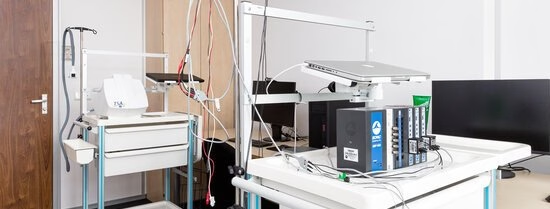Stimulus and analysis software
The EBL offers researchers access to various stimulus and analysis software to study and analyse human behaviour. The software programs at EBL are used to create and conduct experiments at cognitive, social, neurophysiological and psychological level. Here is a brief overview of the most frequently used programs.
E-prime
This software is mainly used to develop and conduct experiments in which precise timing to the millisecond is essential. E-prime logs data such as exactly when something appears on the screen and exactly when a test subject presses a button. E-prime is available in the support rooms and there is a run time version available in all the labs for conducting an experiment. Besides the standard E-prime, it is also possible to package the experiment via E-prime Go. This means that test subjects can also run an experiment at home.
Presentation
Like E-prime, Presentation is a program which shows you exactly when something appears on the screen and when a participant responds. The software is used for time-critical experiments like EEG experiments.
Millisecond Inquisit
All EBL researchers have access to Inquisit. Like E-prime and Presentation, researchers can program experiments with this software. The difference with the software described above is that Inquisit can run on Windows and Mac OS and is also intended for time-critical online research. Inquisit experiments also have the additional advantage that they can work on a mobile phone. There is an extensive test library available with more than 600 cognitive tests and neurological paradigms, including tutorials showing how to use Inquisit.
Matlab
Matlab is fully available in the EBL. Matlab is used to create stimuli and analyse data.
Other software
The most commonly accessible open source software is also available in the EBL, such as R / R-studio, Psychopy, PyGaze, ZTree and Otree.
In consultation with the EBL management, extra software can always quickly be installed on EBL computers.
Research data management
The researchers are primarily responsible for securing experiment files, executable files, stimuli and collected research data. The EBL does not make back-ups of data. It is therefore vital that the researchers use the "EBL Assistant" utility after each day or session to upload the collected data to our backend servers. You then save them on your research data storage location (for example EUR network drive, SURF research drive, etc.) During the summer, all EBL computers are reinstalled and all the data from the internal EBL storage is deleted.
